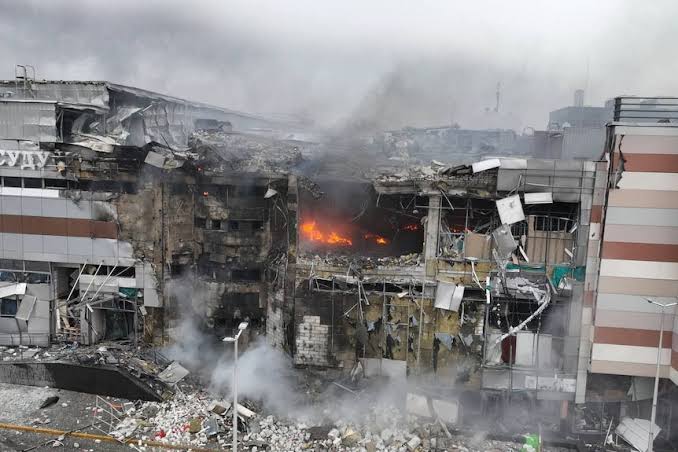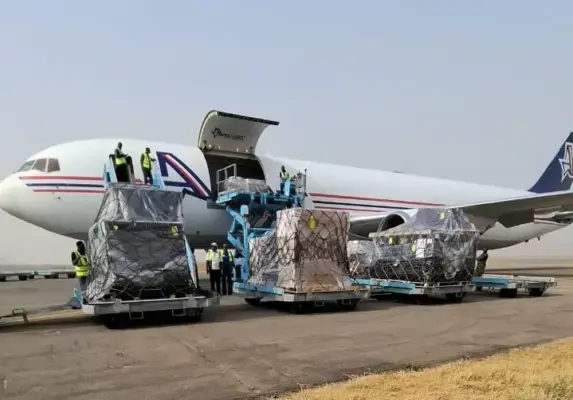
Intense Russian missile and drone attacks overnight left five people dead and tens of thousands without electricity across Ukraine, President Volodymyr Zelensky reported. Four members of a single family, including a 15-year-old girl, were killed in the village of Lapaivka in Lviv region, while another person died in Zaporizhzhia. Several others were injured, including family members and neighbours of the deceased.
According to Zelensky, Russia launched over 50 missiles and approximately 500 attack drones, with Ukraine’s air force recording 549 combined attacks. The assaults mainly targeted the western region of Lviv but also hit Ivano-Frankivsk, Chernihiv, Sumy, Kharkiv, Kherson, Odesa, and Kirovohrad regions. Ukrainian authorities described the strikes as a continuation of Russia’s strategy to disrupt energy supplies and destabilize civilian life as winter approaches.
Lviv endured its largest attack since the full-scale invasion began in February 2022. Maksym Kozytskyi, the regional head, said that approximately 163 missiles and drones were detected in the area, targeting residential buildings, hospitals, civilian industrial facilities, and gas transportation infrastructure. Lviv’s mayor, Andriy Sadovyi, reported that part of the city, roughly 70 kilometers from the Polish border, lost power for several hours, and public transport services were suspended.
In Zaporizhzhia, strikes on a power plant left over 73,000 consumers without electricity. Ivan Fedorov, the regional head, confirmed that a woman was killed and several others were injured, including a 16-year-old girl. Emergency power outages were also implemented in Chernihiv and Sumy to mitigate the damage.
Ukraine’s air force reported that it successfully intercepted 478 missiles and drones, though six penetrated defenses and caused direct hits at 20 locations nationwide. Russian forces continue to occupy most of Ukraine’s eastern Donbas region, including Luhansk and Donetsk, controlling roughly a fifth of the country’s territory alongside the annexed Crimean peninsula.
The attacks coincided with a period of heightened tensions, following US assurances that Ukraine could launch deeper strikes inside Russian territory. US Special Envoy to Ukraine, Keith Kellogg, stated that there are “no sanctuaries” for Ukrainian forces seeking to target Russian military or energy infrastructure. Ukraine has recently intensified strikes on Russian oil refineries, which have caused petrol shortages in parts of Russia.
President Zelensky condemned the attacks as “especially cynical,” occurring as Ukrainians prepare to heat their homes during the approaching winter. He urged faster implementation of all defense agreements, particularly in air defense, suggesting that a unilateral ceasefire in the skies could open the door to real diplomacy. Zelensky emphasized that more protection and rapid reinforcement of defenses are urgently needed to counter Russia’s aerial terror.
Russia’s defense ministry claimed success, describing the strikes as “massive” and targeting Ukrainian military and infrastructure assets. State-owned Russian news agency RIA reported that Russian air defense units destroyed 32 Ukrainian drones overnight.
The scale of the attack underscores the ongoing vulnerability of Ukraine’s civilian infrastructure and the strategic focus of Russian forces on energy targets. It also highlights the urgent need for continued international support, both in terms of air defense systems and humanitarian assistance, to protect civilian populations and sustain essential services amid ongoing conflict.
Erizia Rubyjeana


